International
Biden Administration to suspend deportations for 100 days

Joe Biden’s administration announced on Wednesday that it will stop deportations for 100 days. This measure is one of the first immigration policy changes in the United States.
Through a memorandum signed by the Acting Secretary of the Department of Homeland Security (DHS), David Pekoske, it was announced that as of January 22, “deportations of certain non-citizens ordered deported will be stopped to ensure that we have a fair and effective immigration enforcement system focused on protecting national security, border security, and public safety.” Starting on that date, the suspension will be effective for 100 days.
“The pause will allow DHS to ensure that its resources are dedicated to responding to the most pressing challenges that the United States faces, including immediate operational challenges at the southwest border amid the most serious global public health crisis in a century,” the statement added.
DHS entails U.S. Customs and Border Protection, Immigration and Customs Enforcement, and U.S. Citizenship and Immigration Services.
On the same note, Biden signed an executive order rolling back changes made by Donald Trump during the first week of his presidency in 2017, that tightened immigration law in the country.
International
Maduro signs Economic Emergency Decree to counter U.S. sanctions on Venezuela
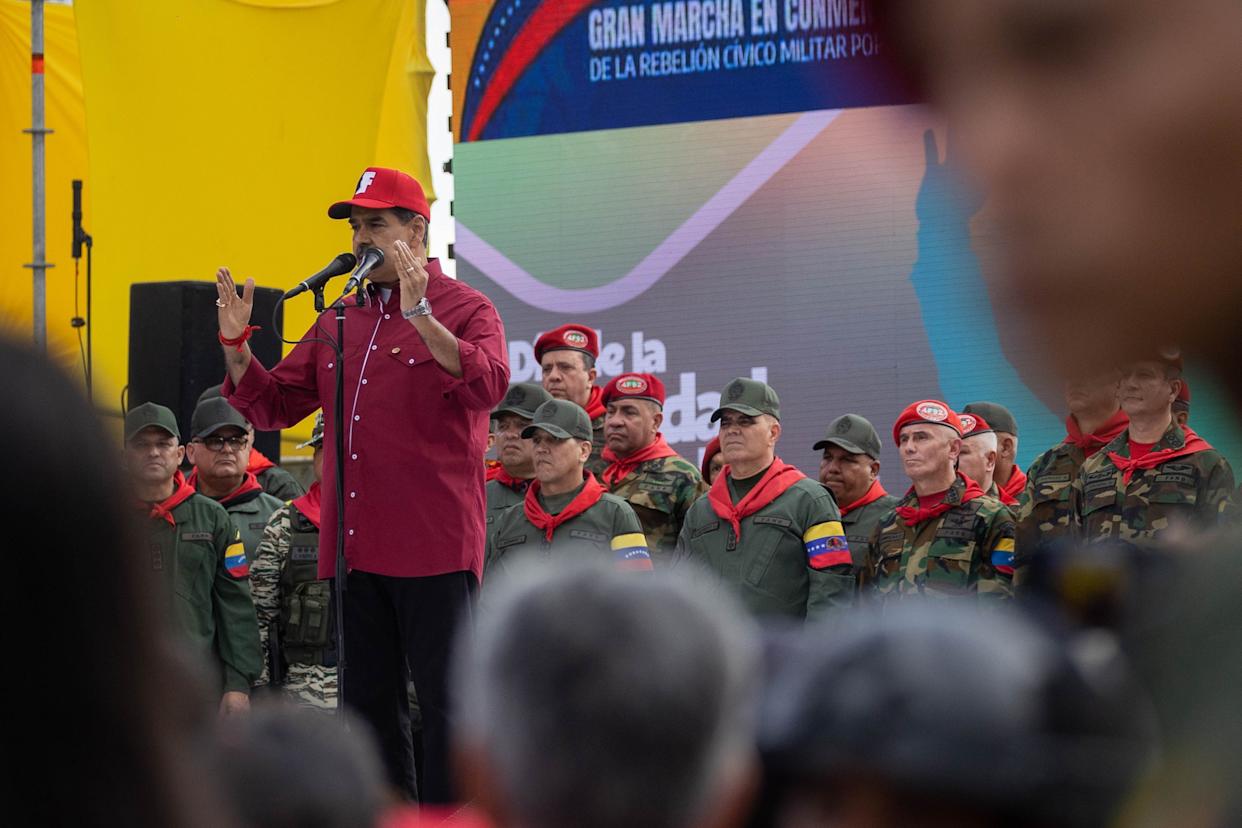
The National Assembly of Venezuela approved on Thursday an economic emergency decree presented this week by the government of President Nicolás Maduro, in response to sanctions and tariffs imposed by the United States.
In March, the government of Donald Trump began suspending licenses for foreign oil companies operating with the state-owned Venezuelan oil company PDVSA and imposed secondary tariffs on crude oil and gas exports. Maduro signed the decree on Tuesday, invoking constitutional articles that allow him to declare states of exception, temporarily restrict constitutional guarantees, or declare a state of emergency in the event of disasters, public calamities, or events that seriously threaten the country’s security.
The emergency decree “is to support national production,” said Delcy Rodríguez, Vice President and Minister of Hydrocarbons, during the document’s presentation.
“The affected oil markets, the fall in oil prices, have already surpassed 30% in our measurement, and this, as we say, is just the beginning,” Rodríguez stated, clarifying that Venezuela’s oil and gas production continues.
Rodríguez also mentioned that foreign oil companies are welcome to operate in Venezuela in accordance with local laws.
The United States has set a deadline of May 27 for oil companies operating in Venezuela, including Chevron (U.S.), Eni (Italy), and Repsol (Spain), to wind down their operations and exports.
The decree grants Maduro the authority to implement measures he deems necessary to ensure economic growth, contain inflation, offer special treatment to investors, suspend taxes, or apply exceptions to tax laws, and establish import substitution mechanisms, among other measures.
Maduro and his government have consistently rejected sanctions imposed by the United States and other countries, arguing that they are illegitimate measures constituting an “economic war” designed to cripple Venezuela.
The president and his allies have celebrated what they describe as the country’s resilience despite these measures, although they have historically attributed some economic difficulties and shortages to the sanctions.
This is not the first time Maduro has governed under an emergency decree. In 2016, he signed a similar decree, which was extended until 2021 under the argument of sanctions imposed on Venezuela by Washington.
With the Assembly’s approval, the decree must now be sent to the Constitutional Chamber of the Supreme Court of Justice.
Central America
U.S. Government says deported migrants should remain in El Salvador for life
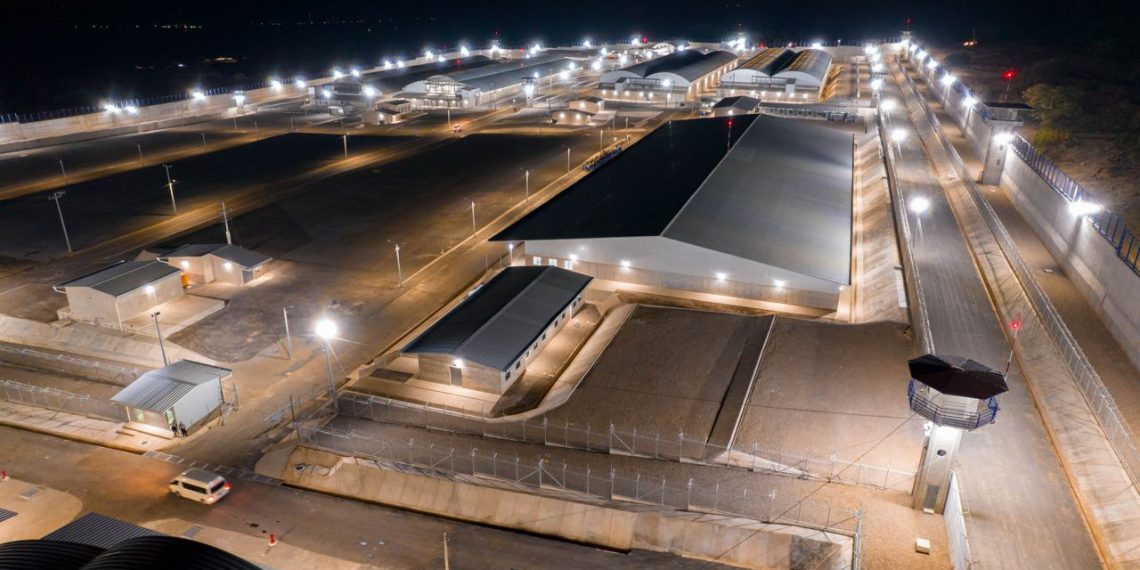
The United States government believes that the 238 migrants recently deported to El Salvador should remain in the country “for the rest of their lives.”
This was stated by Kristi Noem, the Secretary of Homeland Security, during a press conference. The following day, in a televised cabinet meeting, she reiterated the government’s commitment to continue its campaign to deport over 11 million people living in the U.S. without legal immigration status.
“We are confident that the people (sent to El Salvador) should be there, and they should stay there for the rest of their lives,” Noem told a group of reporters on Wednesday.
Despite the Trump administration’s defense of its decision to transfer the migrants to the Terrorism Confinement Center (Cecot), both testimonies from their families and reports from U.S. media outlets have shown that most of those currently detained there have no criminal backgrounds.
International
Italian biologist found dead in Colombia; investigation underway
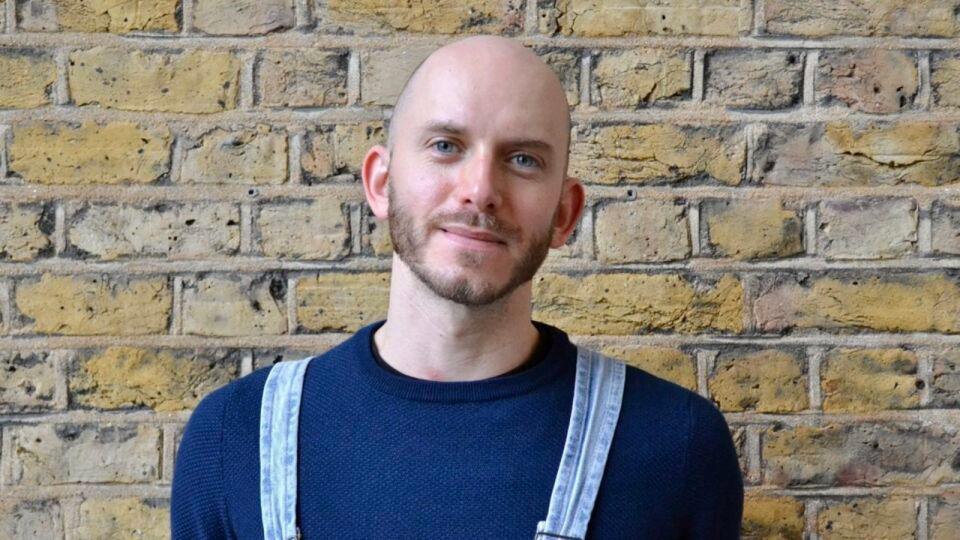
An Italian scientist has been found dead in Colombia, local authorities confirmed, after body parts were discovered along a trail in the coastal city of Santa Marta on Sunday.
Municipal police said that a bracelet found among the remains belonged to Alessandro Coatti, a biologist who had recently embarked on a journey across South America. Additional human remains were later discovered in two other locations within the city.
According to the police, Coatti had been staying in a local accommodation and was reportedly visiting the scenic Tayrona coastal area on April 5. His whereabouts since that date remain unknown, prompting an urgent investigation.
“There are currently no further details available; the case remains under investigation,” Colombia’s Attorney General’s Office said on Thursday. “It is still unclear what happened or where.”
-

 Internacionales5 days ago
Internacionales5 days agoErik Prince Backs Ecuador’s Daniel Noboa in Fight Against Crime and “Narcoterrorism”
-

 Central America5 days ago
Central America5 days agoGuatemala’s Legal Chief Shot Dead in Parking Lot: Investigation Underway
-

 International3 days ago
International3 days agoRussia and US to Meet in Istanbul for Diplomatic Talks on April 10
-

 Central America3 days ago
Central America3 days agoHonduras Hosts CELAC Summit Amid Regional Concern Over U.S. Deportations
-

 Central America3 days ago
Central America3 days agoAudit Exposes Major Breaches in Panama Canal Port Concession, $300 Million Owed to State
-

 International3 days ago
International3 days agoTeachers in Southern Mexico Bring Education to Stranded Migrant Children
-

 Central America3 days ago
Central America3 days agoMulino and Orsi Highlight Shared Vision After Panama Joins Mercosur as Associate State
-

 Central America3 days ago
Central America3 days agoTrump Administration Asks Supreme Court to Block Return of Deported Salvadoran
-

 Sports3 days ago
Sports3 days agoNeymar Returns to Santos Training After Month-Long Injury Layoff
-

 International1 day ago
International1 day agoMerengue concert turns to mourning as Jet Set collapse claims 136 lives
-
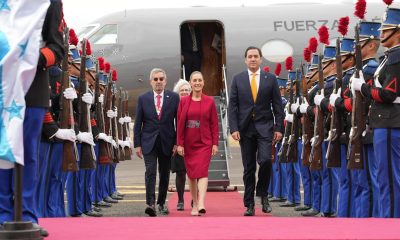
 Central America1 day ago
Central America1 day agoMexico’s president proposes regional economic summit at CELAC
-
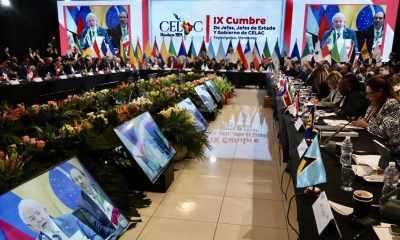
 Central America1 day ago
Central America1 day agoColombia to host fourth EU-CELAC Summit in November
-

 Central America7 hours ago
Central America7 hours agoNicaragua seeks ICJ intervention in Gaza conflict amid escalating violations
-
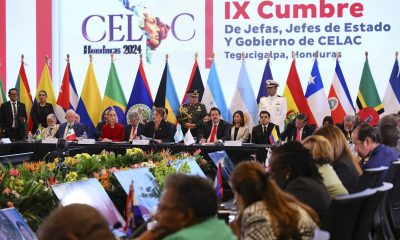
 Central America1 day ago
Central America1 day agoCELAC condemns unilateral sanctions in ‘Tegucigalpa Declaration’
-

 International3 days ago
International3 days agoMaduro Announces Economic Emergency Decree Amid Growing Tensions with the U.S.
-

 International3 days ago
International3 days agoTransgender Student Arrested at Florida Capitol for Using Women’s Restroom Under New State Law
-

 International3 days ago
International3 days agoScience Brings Back the Extinct Direwolf with Successful De-Extinction Project
-

 International7 hours ago
International7 hours agoItalian biologist found dead in Colombia; investigation underway
-

 Central America7 hours ago
Central America7 hours agoU.S. Government says deported migrants should remain in El Salvador for life
-

 International7 hours ago
International7 hours agoMaduro signs Economic Emergency Decree to counter U.S. sanctions on Venezuela















